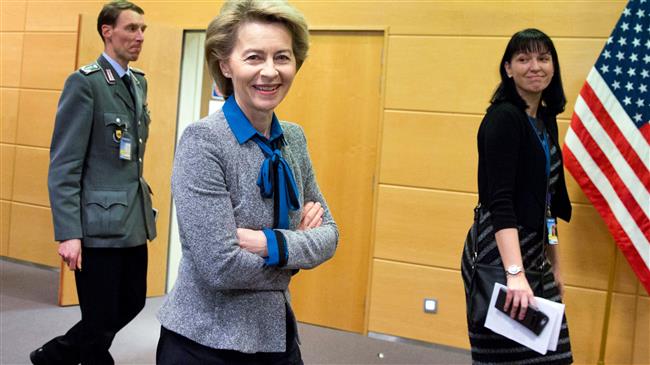EU divided on Balkan expansion in face of Russia fears
European Union foreign ministers have failed to reach agreement on a proposal to expand into the Western Balkans, citing problems such as ethnic wars and alleged criminal activities there.
Meeting in the Bulgarian capital of Sofia on Thursday, the EU ministers discussed for the first time plans by the European Commission envisioning 2025 as a target date for Serbia and Montenegro to be admitted to the bloc.
While the foreign ministers of Hungry, Poland, Austria, and Italy welcomed the proposal, top diplomats of the EU’s leading powers Germany, France, and Slovenia expressed reservations about the move.
Berlin remains very reluctant, pointing to alleged rule of law deficiencies in the bloc’s newer member states, such as Romania, Bulgaria, Poland, and Hungary.
“I’ve just come from Serbia, and in Kosovo, the situation is exceptionally difficult,” said German Foreign Minister Sigmar Gabriel. “We will speak frankly about this today.”
Among the persisting issues complicating the Western Balkans’ integration with the West is Serbia’s refusal to recognize the independence of its former province Kosovo.
Moreover, Slovenian Foreign Minister Karl Erjavec said he believed that even 2025 was “not realistic” as a goal, insisting that the Western Balkan states would need more time to resolve their differences and meet the criteria for admittance into the EU.
French Foreign Minister Jean-Yves Le Drian also expressed caution.

EU diplomats further said that corruption and alleged powerful criminal gangs smuggling weapons, drugs, and asylum seekers over European borders top a long list of issues the six Balkan hopefuls would have to tackle if they ever were to be allowed into the bloc.
The proponents of stepped-up efforts to open the bloc to the Balkans also expressed concerns about allegedly rising Russian and Chinese influence in the region.
“Who will be first in Belgrade — China or the EU? It is that (which) we have to counteract, as it is our immediate neighborhood,” said Austria’s Foreign Minister Karin Kneissl while speaking to reporters.
Meanwhile, Bulgarian Prime Minister Boyko Borissov further declared that he would host the heads of the Balkan states on March 1 for talks with European Commission chief Jean-Claude Juncker on the construction of new highways and railways to improve links with the EU.
VIDEO | Yemenis praise the military for its successful operations against Israel
VIDEO | Israel continues to bomb Gaza homes
VIDEO | An insider's view of the country: Meybod City in Yazd
‘All wars have rules. All of those rules have been broken’ by Israel
VIDEO | Report flags India’s violation of rights of Rohingya detainees
Turkey's foreign minister meets Syria's de facto leader in Damascus
VIDEO | US Syria plots
'Next to impossible' to rescue patients from Gaza's Kamal Adwan Hospital: Director













 This makes it easy to access the Press TV website
This makes it easy to access the Press TV website